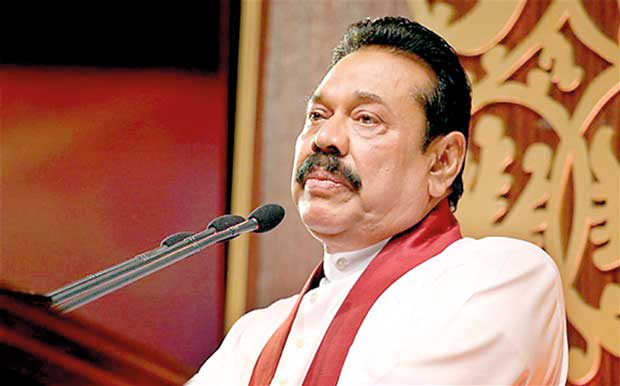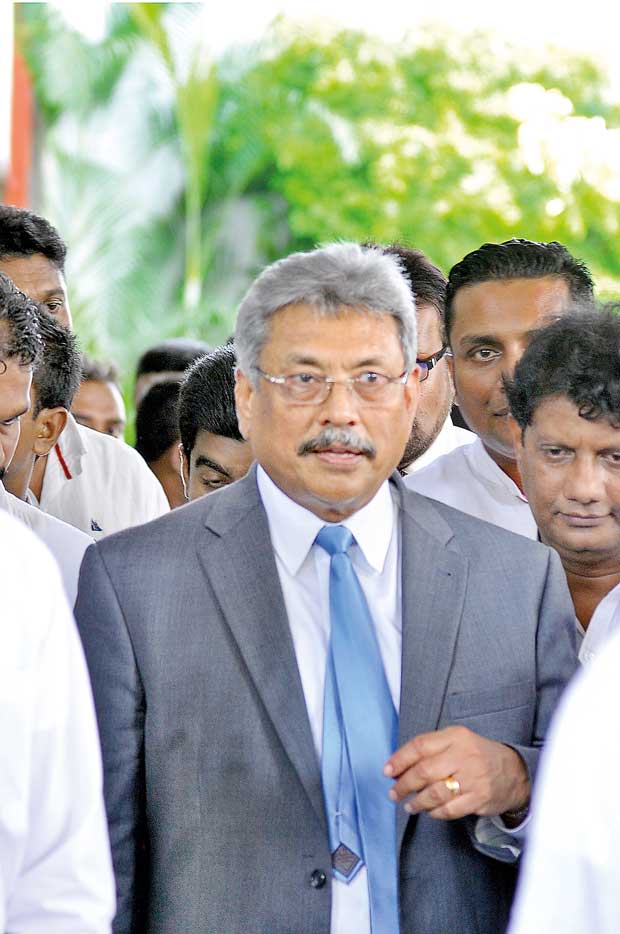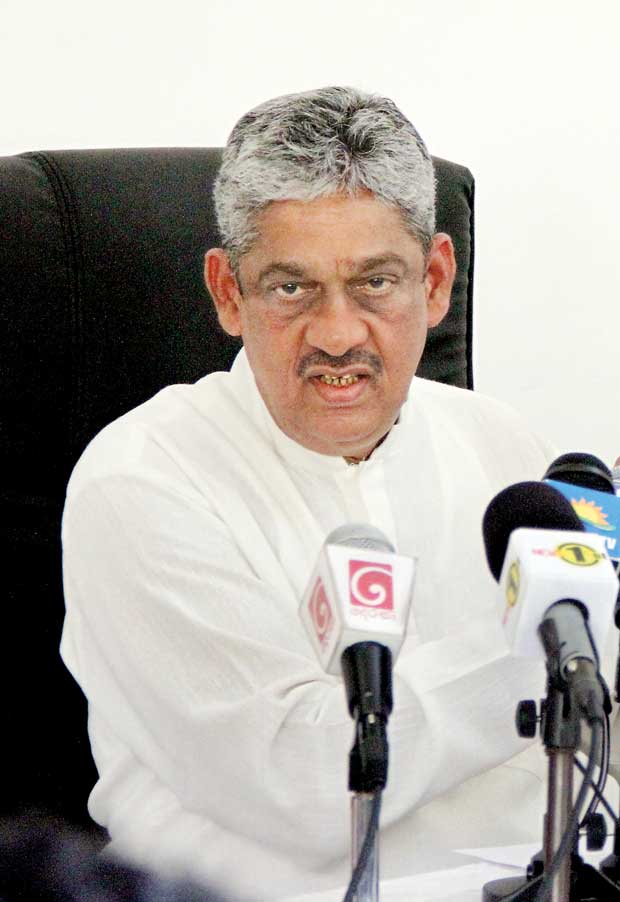Reply To:
Name - Reply Comment
The leadership of the LTTE was decimated in Mullivaikkal and on the banks of the Nandikakadal lagoon
The professionalism of the Sri Lankan security forces has won widespread praise across the world
Army Commander used tactics and strategy against the LTTE which Prabhakaran could not figure out how to react
 The Sri Lankan Army, on July 16, 2008 captured the Vidaththalthivu Sea Tiger base, a strategically important fortification of the Liberation Tigers of Tamil Eelam (LTTE) in the Mannar District.
The Sri Lankan Army, on July 16, 2008 captured the Vidaththalthivu Sea Tiger base, a strategically important fortification of the Liberation Tigers of Tamil Eelam (LTTE) in the Mannar District.
Since this major victory was achieved by the security forces a few months after they recaptured the entire Eastern Province culminating in the fall of the Tamil rebels’ Thoppigala Camp, an unprecedented confidence of final victory had been infused in the minds of the people in the southern parts of the country.
Hence, banners and posters sprang up all over those parts of the country applauding the security forces, though many people did not know even where Vidaththalthivu is situated or what the significance of the capture of the sea Tiger base was.

The celebrations were not organised by any group or groups but were a spontaneous outcome of the week long media hype on the battle of Vidaththalthivu.
That was a turning point in the rising fame of the then Army Commander Lieutenant General Sarath Fonseka, as people in the southern parts of the country started venerating him. His fame then grew like a meteor with the 58 Division of Sri Lanka Army led by Brigadier Shavendra Silva advancing in a rapid pace along the western cost of the Wanni, the Tiger heartland and then making its thrust into that region.
When the troops recaptured Kilinochchi, the then administrative capital of the LTTE in January 2, 2009 after a lull period and a long siege of the town, Fonseka’s fame was shot to its peak and some people in the south fondly suggested that he would defeat even President Mahinda Rajapaksa, who was already politically capitalising the war victories by the troops, if he contested the ensuing Presidential Election.
Gotabaya had a military past. He had taken voluntary retirement from the Sri Lanka Army. He had retained his long standing friendship with Lt. General Sarath Fonseka. Gotabaya met Fonseka and asked him, ‘Can you go for a win’? The battle-hardened veteran said ‘Yes, but you will have to permit me to pick my own team.”
Gotabaya and Mahinda agreed.
“We will let the military do its job, while we hold the fort, politically,” they told Fonseka. This deft political arrangement worked”
The leadership of the LTTE was decimated in Mullivaikkal and on the banks of the Nandikakadal lagoon by May, 2009 while its fighting capacity was brought down to zero with its combatants either being killed or captured or surrendering to the security forces.

By the time the total credit for the victory in the more than three decade long war against the most ruthless terrorist outfit in the world, as it was called, had gone to the political leadership of the country.
Even Army Commander Fonseka conceded it probably due to the heightened public opinion created by the politicians and the media.
Responding to a question as to what the secret behind the victory in the war that was achieved within a short period of two years and ten months during an interview with the now defunct Bottom Line newspaper, Fonseka said “To win this war, I was backed by strong political leadership. Whenever there was international pressure exerted on the Government, to stop this war, President Mahinda Rajapaksa stood up to the pressure without caving in. Apart from the President, Defence Secretary Gotabaya Rajapaksa too, had confidence in me. They understood the enemy. Both had a good understanding.”

He was correct. It was due to the sheer confidence reposed on him, he was appointed Army Commander. After an interview with Gotabaya Rajapaksa Indian journalist V. K. Shashikumar wrote in the Indian Defence Review of July – Sept 2009 issue how Fonseka was chosen.
“Gotabaya had a military past. He had taken voluntary retirement from the Sri Lanka Army. He had retained his long standing friendship with Lt. General Sarath Fonseka. Gotabaya met Fonseka and asked him, ‘Can you go for a win’? The battle-hardened veteran said ‘Yes, but you will have to permit me to pick my own team.”
Gotabaya and Mahinda agreed.
“We will let the military do its job, while we hold the fort, politically,” they told Fonseka. This deft political arrangement worked”
Though the credit for the victory drifted towards the political leadership, Fonseka was still the star. In an interview with the State run ITN soon after the end of the war Gotabhaya Rajapaksa, stated “The professionalism of the Sri Lankan security forces has won widespread praise across the world and the Indian Defence Secretary M.K. Narayanan called the Army Commander Lieutenant General Sarath Fonseka the best Army Commander in the world for his role against capturing back LTTE occupied areas in the North and the Eastern Provinces of Sri Lanka.”
He further said “These achievements would never have been won without the experience, the knowledge, the bravery and heroism of Lieutenant General Sarath Fonseka.”
Pointing out another reason why the armed forces won in the fourth Eelam War Gotabaya Rajapaksa said “Army Commander used tactics and strategy against the LTTE which Prabhakaran could not figure out how to react. The Army Commander used soldiers in small groups in attacking the enemy. He had a wider frontage in dealing with the enemy, to attack from several places at the same time.”
However, there had been an undercurrent of cold war between the military and political leaderships during or soon after this period as a result of which Fonseka was asked to step down in two days and was kicked upstairs as Chief of Defence Staff (CDS).
The Wanni Commander during the war Major General Jagath Jayasuriya succeeded as the Army Commander.
Nevertheless, Fonseka was still the star.
Lieutenant General Jayasuriya hence had to tell a state run newspaper “We were able to defeat the LTTE, which was supposed to be invincible, mainly due to his (Fonseka’s) great leadership and commitment. I am so proud to be part of the team under his leadership. I was able to give my fullest support to General Fonseka during his tenure, to win the war.
His “removal” from the Army’s top post indicated the first step towards Fonseka’s downfall and the first open manifestation of the fallout between him and Rajapaksas.
Then he challenged President Mahinda Rajapaksa at the 2010 Presidential Elections, but contrary to the suggestions floated during the capture of Kilinochchi he was humiliatingly defeated. The “best Army Commander in the world” was dubbed by some of the ministers of the Rajapaksa Government such as Dullas Alahapperuma even as an agent of the LTTE.
Gotabaya Rajapaksa who praised Fonseka for his “experience, the knowledge, the bravery and heroism” said that what Fonseka did was nothing but any other Army Commander would have done.
Now, Field Marshal Fonseka calls Jayasuriya a war criminal. He does not seem to have common sense about the command responsibility of any crime allegedly committed during his tenure as Army Commander.
On the other hand, Rajapaksas cruelly avenged their war-winning commander by cashiering, imprisoning and depriving him of his medals and even the pension he had earned.
Admiral Wasantha Karannagoda, the Navy Commander during the last phase of the war, levels so many allegations of undermining his duties, in his book Adishtanaya against Fonseka. Can one imagine this was the leadership of a team that won a war against a ruthless rebel organisation that had an Army, Navy and an Air Force?
The latest allegation of war crimes by Field Marshal Fonseka were levelled days before the 36th UNHRC Regular Session started in Geneva.
This had been followed by a lawsuit filed by a group in Brazil against General Jayasuriya days before he left that country after serving his tenure as the Sri Lankan Ambassador there. The UN High Commissioner for Human Rights Prince Zeid Ra’ad Al- Hussein had reiterated his call for the international intervention in the investigations into the alleged war crimes in Sri Lanka during the ongoing session of the UNHRC.
The defencive attitude by the successive Governments has created a situation where the LTTE has been almost absolved from the allegations.
The only attempt to correct the situation, on behalf of the Government and the security forces, thus far was made by the former Civil Security Department Chief Retired Rear Admiral Sarath Weerasekara, who had gone to Geneva in June with allegations against the LTTE.
However, “two wrongs don’t make a right.” The allegation of war crimes and human rights violations would haunt Sri Lanka in the future as well until the government proved that the allegations against the security forces are wrong.